Call Us: 555-555-1234
William Beaumont Alliban
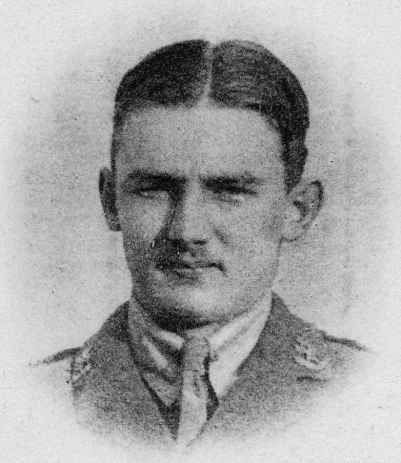
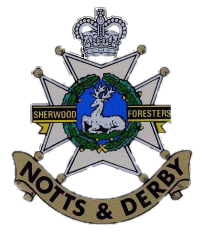
| Surname | Alliban |
| Forename/s | William Beaumont |
| Rank | Lieutenant |
| Service Number | |
| DOB | 1896 at Pershore |
| Address | Tupton Hall On the 1911 census he lived at 9, Cross Street, Chesterfield |
| Date & place of death/details | 5/5/17 aged 20. He was killed in action during the attack on and capture of the fortified German trench system at Malakoff Farm, Hargicourt, near St Quentin |
| Regiment & Unit | 2nd/5th Battalion, attached 5 Battalion, Sherwood Foresters (Nottinghamshire & Derbyshire Regiment) |
| Service details | France & Flanders |
| Military Awards? | Mentioned in Despatches This
is the lowest form of recognition that was
announced. The Mention in Despatches (M.I.D.)
for a Soldier is not an award of a medal, but is
a commendation of an act of gallantry or
service. William Beaumont Alliban’s name would
appear in the official report written by a
Superior Officer and sent to the high command,
in which is described the Soldier's gallant or
meritorious action in the face of the enemy.
This despatch is published in the London Gazette
newspaper of the State, which has existed since
1665 and is still published today. This
is the lowest form of recognition that was
announced. The Mention in Despatches (M.I.D.)
for a Soldier is not an award of a medal, but is
a commendation of an act of gallantry or
service. William Beaumont Alliban’s name would
appear in the official report written by a
Superior Officer and sent to the high command,
in which is described the Soldier's gallant or
meritorious action in the face of the enemy.
This despatch is published in the London Gazette
newspaper of the State, which has existed since
1665 and is still published today.The phrase “Mentioned in Despatches” was used for the first time in a newspaper article by Winston Churchill on 6th October 1898. From the time of the Boer War, the Despatches were published in full or in part. During World War One the citations published in the London Gazette did not usually give details of the place and date of the action for which awarded for security reasons. For most of these you need details from the War Office copy of the gazette. This can enable a search of the unit War Diary which will give a broader picture of the action for which William Beaumont Alliban was awarded the M.I.D. In general no recommendations for Mention in Despatches survive for the army during WW1. A soldier could be mentioned in despatches more than once and in 1919 Army Order 166/1919 confirmed that individuals mentioned would receive a certificate, this included all British forces and Commonwealth Countries. In 1920 the Army Order authorised the issue of an oak leaf emblem decoration to be pinned or sewn diagonally on to the ‘Victory’ medal ribbon. If no campaign medal is awarded, the oak leaf is worn on the left breast of the dress uniform. This would signify that William Beaumont Alliban had been ‘Mentioned in Despatches’. |
| Married? Children? | |
| Any photographs? | YES - Flickr website & Derbyshire Times. |
| Derbyshire Times & Derbyshire Courier Obituary? | Yes 12/6/1917 (page 5) &
19/5/1917 (page 4) Derbyshire Courier
6/4/18.jpg) .jpg) .jpg) 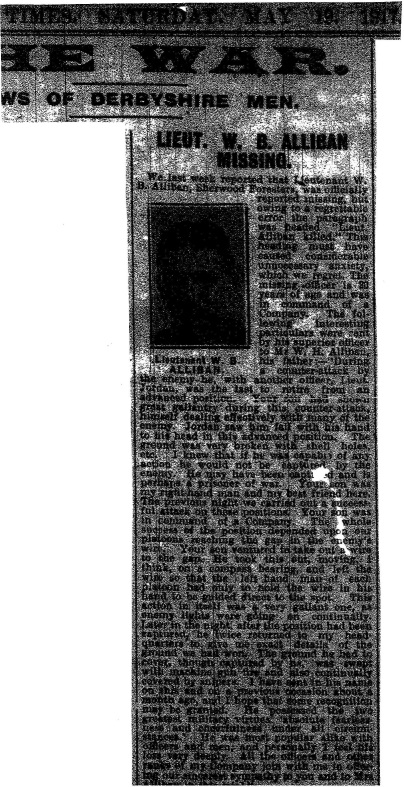 |
| Parents names | Mr William Henry & Mrs Georgia Maud Alliban |
| Parents address | Tupton Hall Previously 9, Cross Steet, Chesterfield. |
| Grave location or memoria location | No Grave. Thiepval Memorial, Pier & Face 10C 10D and 11A. |
| Living relatives? | |
| Any other information? |
A former
scout with the 2nd Chesterfield Group A
Territorial in the Inns of Court Officer
Training Corps with the nominal rank of Private,
he obtained a commission as a Second Lieutenant
in the 5th Sherwood Foresters (Notts. and Derby
Regt.) on 11th March 1915. He
attended Chesterfield Grammar School, and is on
the ‘Old Cestrefeldians’ memorial |
|
Campaign Medals: |
|
Victory Medal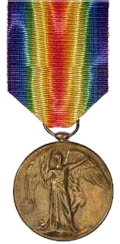 |
Given
the information available it is likely that
William Beaumont Alliban was entitled to the Victory
medal, also called the Inter Allied Victory Medal. This
medal was awarded to all who received the 1914 Star or
1914-15 Star and, with certain exceptions, to those who
received the British War Medal. It was never awarded
alone. These three medals were sometimes irreverently
referred to as Pip, Squeak and Wilfred. Eligibility for this award consisted of having been mobilised, fighting, having served in any of the theatres of operations, or at sea, between midnight 4th/5th August, 1914, and midnight, 11th/12th November, 1918. Women who served in any of the various military organisations in a theatre of operations were also eligible. |
British War Medal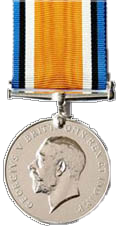 |
From
the information available it is very possible
that William Beaumont Alliban was entitled to the
British War Medal for service in World War One. This
British Empire campaign medal was issued for services
between 5th August 1914 and 11th November 1918. The medal was automatically awarded in the event of death on active service before the completion of this period. |